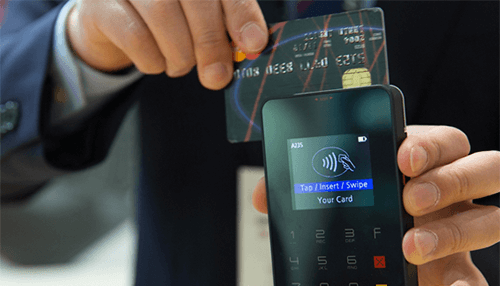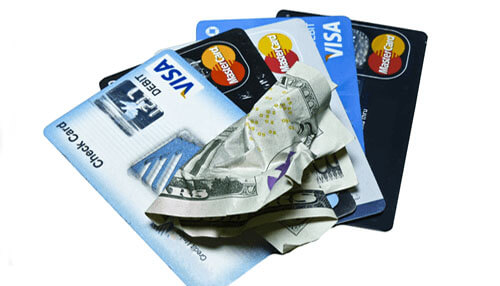A “high-risk merchant account” is one for businesses that take credit card payments but are considered high-risk by banking institutions and credit card processing companies. Salespeople (inbound or outbound), internet/e-commerce enterprises, businesses in the tourism and transport sectors, online auctions, and membership clubs are all examples of high-risk businesses. This article will provide you with some more advice on obtaining a high-risk merchant account approval instantly.
What is a High-Risk Merchant Account?
A high-risk merchant account is a payment processing account for firms that banks regard to be high-risk. Because high-risk firms are more likely to experience chargebacks, they must pay higher costs for merchant services. The bank may place a reserve on your account if your firm has a high risk of chargebacks or if your account history indicates a lot of chargebacks and returns. It’s the amount of money reserved to protect against chargebacks and fraud.
Advantages of Having a High-Risk Merchant Account
When a company is categorized as a high-risk company, it offers a variety of benefits. The feature of quick approval merchant accounts is the primary reason for the increase in people choosing to get a high-risk merchant account. The following are some of the numerous benefits obtained by high-risk businesses:
1. Businesses are permitted to use debit and credit cards as payment methods, allowing them to complete transactions that help them reclaim lost ground by cleaning their credit histories and prior payments.
2. In the presence of different sorts of fraudulent activity and chargebacks, there is improved protection. Because high-risk organizations are more likely to have chargebacks, the payment processor and issuing bank take extra precautions to ensure that the transactions are secure.
3. Businesses classified as high-risk firms have a unique quality that comes in handy when the business is in trouble. This unique feature is a reserve account, which is a separate account from the company’s capital. This account manages chargebacks and the requirement for a surplus amount to cover the problem at hand.
4. The most excellent part about taking a high-risk business is that the company has a worldwide reach. This is aided by various technological advancements that allow high-risk service providers to help enterprises in need of financial support.
Ways to Get Instant Approval for High-Risk Merchant Account
1. Maintain a Good Credit Score
Before applying for a merchant account, remove any previous bankruptcies, delayed payments, or liens from your credit file. Contact a credit reporting agency or a firm that manages consolidated credit reports from key reporting agencies to obtain your credit history. Send them a letter explaining that these issues have been resolved and requesting that they be erased from your credit record. A strong credit score will have a long-term and satisfying influence on a payment processor, whether you have a small or big company.
2. Be Truthful
Previous merchant accounts, bankruptcies, liens, and verdicts should all be disclosed. You increase your reputation by supporting previous financial difficulties, and you may face one lesser barrier to getting a new merchant account. You can’t keep facts from the public record hidden.
3. Be Prepared To Pay Additional Fees or Meet Special Account Restrictions If You Live in a Foreign Country.
By all means, if you need to adhere to unique restrictions or pay somewhat higher costs to register a merchant account, go for it! It is worthwhile to provide as many non-cash payment choices as feasible to your customers. It will be beneficial to you if you can create money and encourage spontaneous purchases.
4. Look Around for the Perfect Credit Card Processor for your Needs
Speak with a variety of processors, and don’t be scared to ask questions. Learn more about:
1. Discount Rate: The proportion of each transaction paid to the merchant account provider is called the discount rate. The processor may charge a more significant proportion of your monthly charges are less than a specific amount.
2. Transaction fee: A one-time cost levied for each transaction performed by the company.
3. Equipment: Point-of-sale terminals, scanners, and gadgets are all examples of this. Inquire about installation prices as well.
4. Monthly minimum fees: These are the monthly fees collected from the trader by the merchant account provider if the trader’s discount rate and transaction fees do not tally up to the monthly minimum set on the merchant firm. If the monthly minimum volume is not met, it is normally around $25 per month.
5. Reserve fees: If your credit rating is questionable, or if you run a new or high-risk company, you may be required to open a reserve account, which safeguards the processor against potential losses. A proportion of your sales is used to calculate the reserve account.
6. Chargeback fees: These are the charges that a processor collects to investigate dispute charges.
7. E-commerce: Inquire with your potential processor about the charges of retail solutions that you’ll need to run your web pages properly. Shopping carts, online hosting, payment processors, virtual kiosks, virtual inspections, databases for order fulfillment, user tracking, and a means to determine tax and shipping charges are all examples of these.
5. Reputable Partner
There are numerous merchant account providers available online these days. However, while there appear to be many options, not all of them are reliable and trustworthy. Furthermore, many providers have rules on what kind of high-risk company they can get involved with and how it would affect them. Thus, you should take your time to ensure that when you discover the proper provider for you, they will act in your best interests. You won’t waste time and effort this way, and you’ll get the quickest and valid approval possible.
Takeaway
You should deal with a reliable merchant account provider specializing in high-risk processors to expedite the approval process. Partnering with a provider who has an established track record and experience in your business will help you get signed up and approved faster. You should also double-check that all of your documents are in good working condition.
To be approved for a merchant account, all merchants must pass a rigorous security audit. Working with a reliable credit card company and keeping these things in mind during the application procedure can help you succeed. You’ll be well on your way to having your account approved for payment services and accepting them.



